Purple Carrots: Nutrition, Health Benefits, and Why You Should Eat More of Them
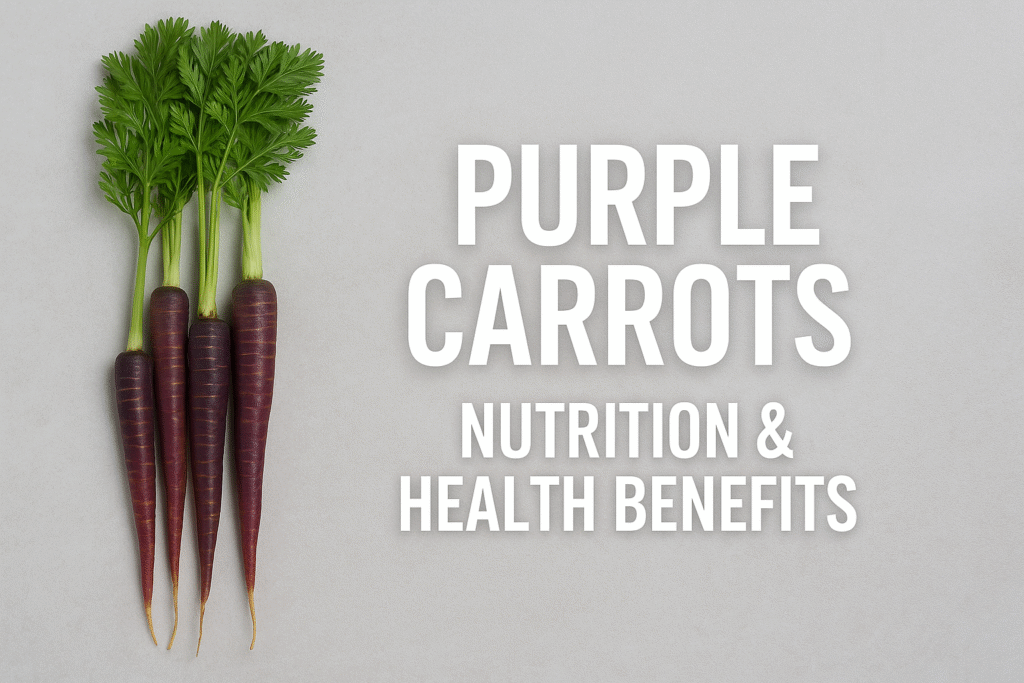
Introduction: Why Purple Carrots Are the New Superfood
Purple carrots are more than just a trendy twist on a classic vegetable—they’re a nutritional powerhouse with roots dating back thousands of years. Once common before orange carrots became the norm, these vibrant veggies are making a comeback due to their rich color, antioxidant content, and impressive health benefits. As health-conscious consumers seek colorful, nutrient-dense foods, purple carrots stand out as a top choice for boosting wellness and adding variety to your plate.
If you’re searching for natural ways to improve heart health, reduce inflammation, and support digestion, purple carrots deserve your attention.
Purple Carrot Nutrition Facts (Per 100g)
Purple carrots are low in calories but high in nutrients and antioxidants. Here’s the detailed nutritional breakdown:
| Nutrient | Amount per 100g |
|---|---|
| Calories | 41 kcal |
| Carbohydrates | 9.6 g |
| Sugars | 4.7 g |
| Dietary Fiber | 2.8 g |
| Protein | 0.9 g |
| Fat | 0.2 g |
| Vitamin A | 835 µg (93% DV) |
| Vitamin C | 5.9 mg (10% DV) |
| Vitamin K1 | 13.2 µg (11% DV) |
| Potassium | 320 mg (9% DV) |
| Anthocyanins | ~20–30 mg |
These nutrient levels make purple carrots a smart choice for people looking to support a balanced, health-focused diet.
Top 7 Health Benefits of Purple Carrots
1. High in Anthocyanin Antioxidants
Purple carrots contain anthocyanins, potent antioxidants known for protecting cells from oxidative stress. These compounds help combat aging, reduce disease risk, and promote overall vitality.
2. Anti-Cancer Potential
Thanks to their strong antioxidant and anti-inflammatory activity, purple carrots may help reduce the growth of cancer cells. Anthocyanins in particular are linked with lowering the risk of colorectal and breast cancers.
3. Eye Health Support
Packed with beta-carotene, which converts to vitamin A in the body, purple carrots are excellent for maintaining healthy vision and preventing conditions like night blindness and age-related macular degeneration.
4. Powerful Anti-Inflammatory Properties
Regular consumption of purple carrots may help lower chronic inflammation, a major contributor to arthritis, diabetes, and other lifestyle-related diseases.
5. Boosts Heart Health
Purple carrots promote cardiovascular wellness by improving blood circulation, lowering bad cholesterol (LDL), and protecting arteries from plaque buildup.
6. Improves Digestion and Gut Health
With nearly 3 grams of fiber per 100g, purple carrots support healthy bowel movements, feed beneficial gut bacteria, and help prevent digestive issues.
7. Strengthens the Immune System
Rich in immune-boosting nutrients like vitamin A and vitamin C, purple carrots enhance your body’s natural defenses against illness and infections.
Purple Carrots vs Orange Carrots: Which Is Better?
While both types of carrots are nutritious, purple carrots have some unique advantages:
- Color Power: Purple carrots contain anthocyanins; orange ones are high in beta-carotene.
- Antioxidant Richness: Purple carrots offer broader antioxidant protection.
- Taste Profile: Slightly peppery and earthy, they add depth to savory dishes.
- Nutritional Edge: Purple carrots are better for anti-inflammatory and cardiovascular benefits.
For maximum nutrition, include both varieties in your meals.
How to Eat Purple Carrots: Easy Meal Ideas
Want to take advantage of purple carrot benefits? Here are tasty ways to add them to your diet:
- 🥗 Salads: Shred or slice raw purple carrots into vibrant salads.
- 🍲 Roasted Veggies: Toss with olive oil and herbs, then roast until caramelized.
- 🧃 Smoothies and Juices: Blend with oranges, apples, or beets for a detox drink.
- 🍜 Soups and Stir-fries: Add chopped purple carrots to soups and quick-cook meals.
- 🫙 Pickled Snacks: Pickle with vinegar, garlic, and dill for a gut-healthy side.
Pro Tip: To retain maximum anthocyanins, avoid overboiling. Steam or roast instead.
Why You Should Include More Purple Foods in Your Diet
Eating a diverse range of colorful vegetables is key to getting a broad spectrum of antioxidants. Purple carrots are especially beneficial due to their unique plant pigments, which are less common in the average diet. Including purple carrots regularly can help combat oxidative stress, improve gut and heart health, and make your meals more exciting and nutritious.
Related Articles You May Like
- Carrot Nutrition Facts and Health Benefits
- Spinach Superfood Guide: Nutrients and Recipes
- Sweet Potato Health Benefits
Explore these posts to dive deeper into the health benefits of nutrient-rich vegetables!
Purple Carrot FAQs
Q1: What makes purple carrots a superfood?
A: Their high levels of anthocyanins, fiber, and essential vitamins make purple carrots a top choice for health-conscious diets.
Q2: Are purple carrots better than orange carrots?
A: Both are healthy, but purple carrots offer additional antioxidant and anti-inflammatory benefits.
Q3: How do purple carrots help the immune system?
A: They contain vitamins A and C, which help strengthen immune responses and support skin defenses.
Q4: Can you cook purple carrots without losing nutrients?
A: Yes—steaming or roasting helps preserve anthocyanins better than boiling.
Q5: Where can I find purple carrots?
A: Look for them at organic grocery stores, local farms, or farmers markets, especially in fall and winter.

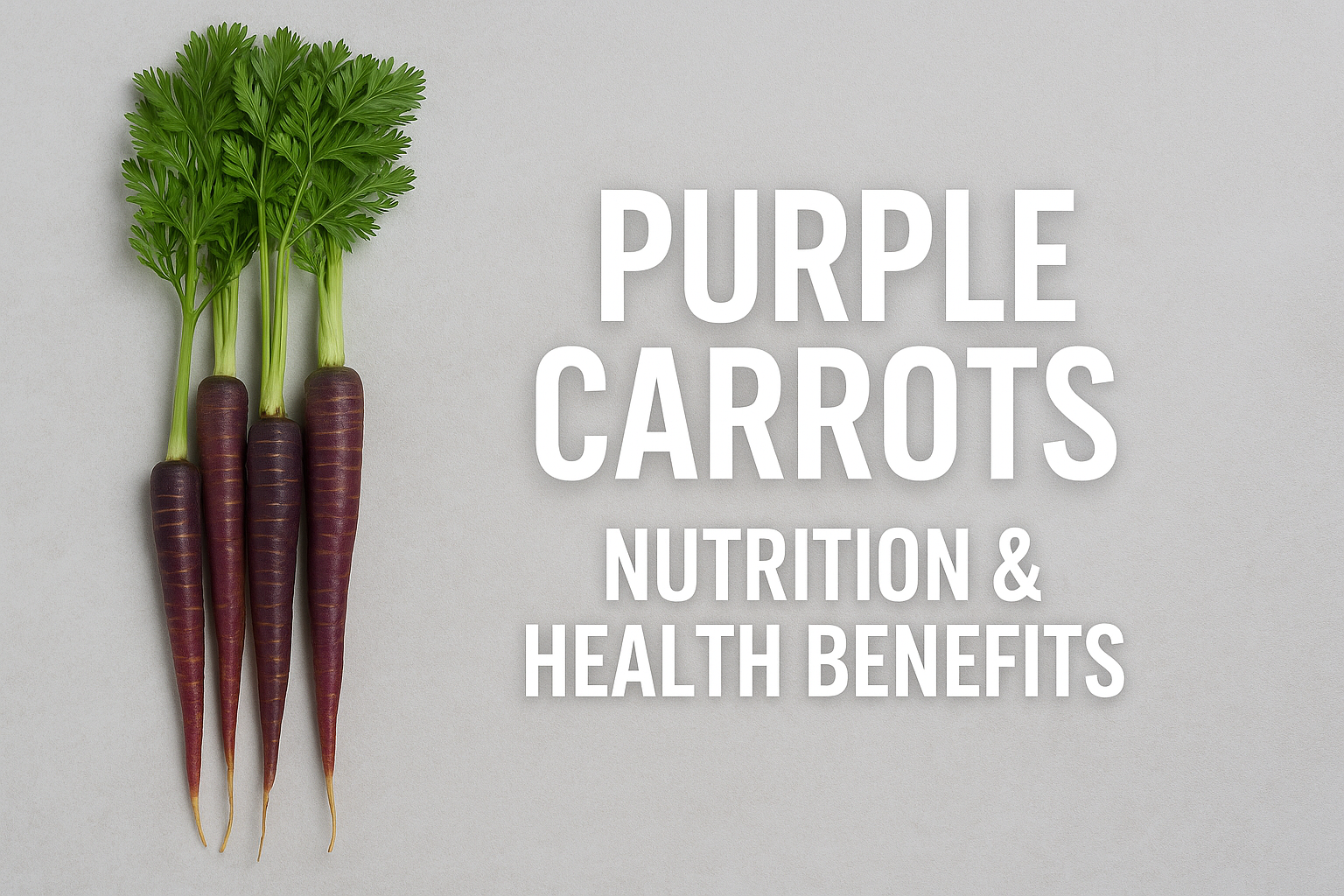



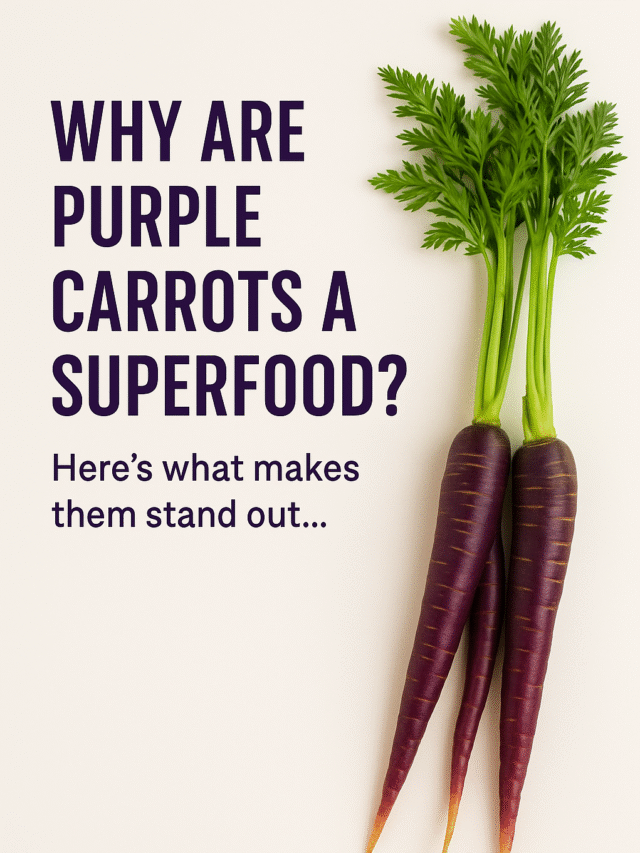
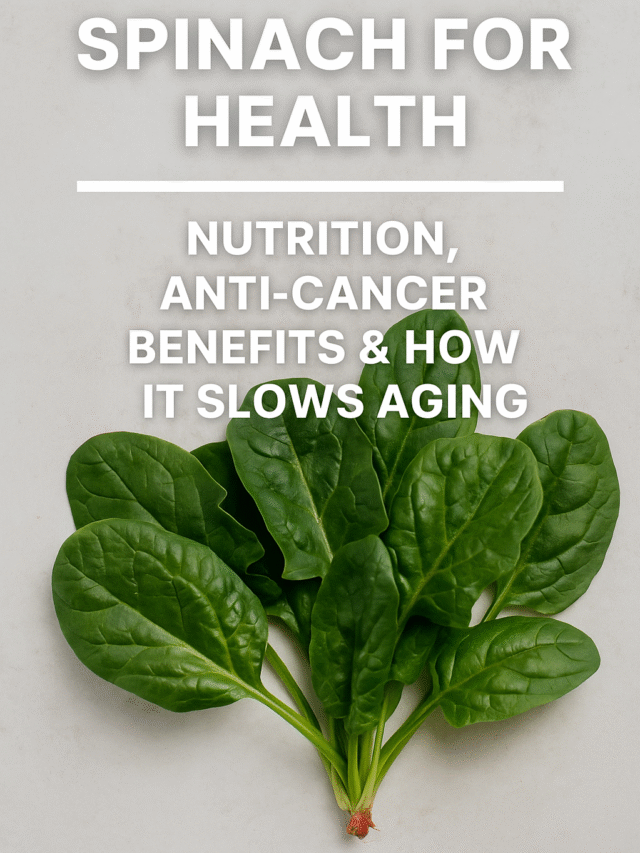
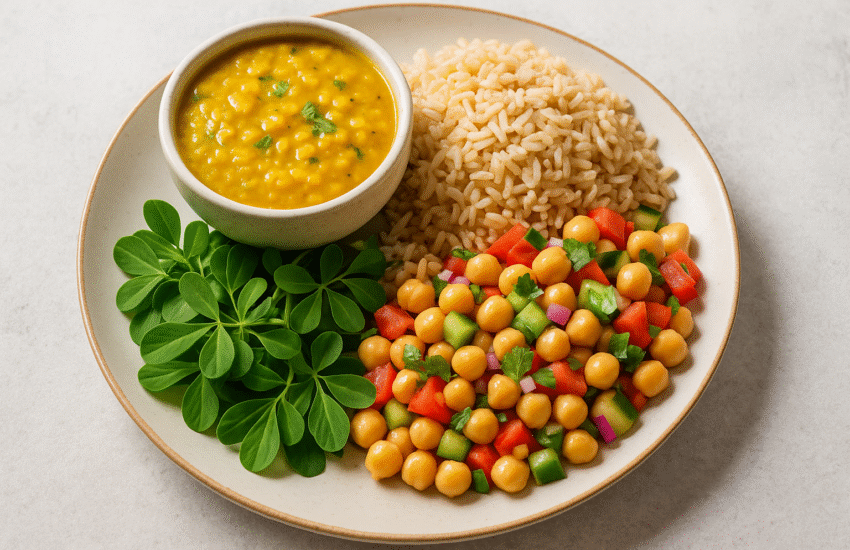

One thought on “Purple Carrots: Nutrition, Health Benefits, and Why You Should Eat More of Them”